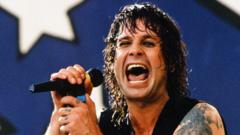In the aftermath of Pope Francis’ death, the perspective of the cardinals gathered at the Vatican is a complex tapestry of hope, uncertainty, and intense debate. Starting this week, they will converge in the Sistine Chapel to elect his successor, but their decision will hinge significantly upon whether they wish to carry forward the legacy of Francis or pivot in an entirely new direction.
The Cardinal Conclave: A Defining Moment for the Catholic Church

The Cardinal Conclave: A Defining Moment for the Catholic Church
As cardinals prepare to choose the next pope, their decision will shape the future direction of the Catholic Church.
For over a decade, Pope Francis has made significant waves in both religious and secular spheres with his willingness to engage in topics often deemed contentious, such as sexuality, climate change, and economic inequality. His inclusive stance and calls for compassion have attracted attention and reshaped dialogues within and beyond the Church. However, as the cardinals assemble, some are advocating for a leader who aligns closely with Francis’ ethos—what some term the "Francis effect"—while others are firmly against the continuation of his policies, yearning for a retraction to more traditional norms.
Notably, Cardinal Anders Arborelius of Sweden has emerged as a potential papal candidate amidst these discussions, acknowledging the embedded differences among the cardinal electors. The conclave, thus, becomes not just a vote for a new leader, but a referendum on Francis' impact—whether to champion his vision or to seek out a fresh start that adheres more closely to long-standing Church traditions.
Pope Francis leaves behind a contentious legacy—a legacy acclaimed by supporters for its liberality and inclusivity but also criticized by traditionalists who feel he strayed too far from the core tenets of Catholicism. As the cardinals deliberate, the world will watch closely, fully aware that their choice will influence the Church's trajectory and its engagement with modern-day challenges for years to come.
Notably, Cardinal Anders Arborelius of Sweden has emerged as a potential papal candidate amidst these discussions, acknowledging the embedded differences among the cardinal electors. The conclave, thus, becomes not just a vote for a new leader, but a referendum on Francis' impact—whether to champion his vision or to seek out a fresh start that adheres more closely to long-standing Church traditions.
Pope Francis leaves behind a contentious legacy—a legacy acclaimed by supporters for its liberality and inclusivity but also criticized by traditionalists who feel he strayed too far from the core tenets of Catholicism. As the cardinals deliberate, the world will watch closely, fully aware that their choice will influence the Church's trajectory and its engagement with modern-day challenges for years to come.




















